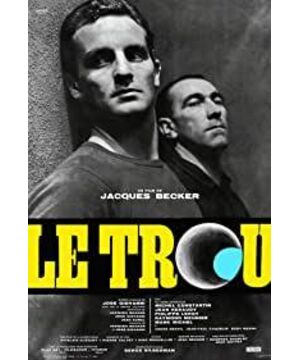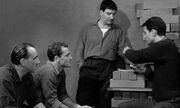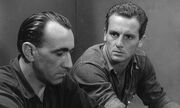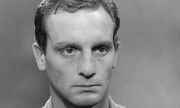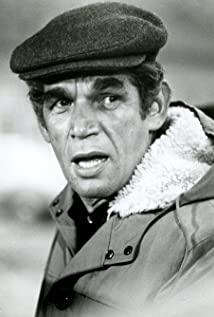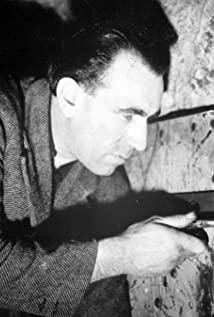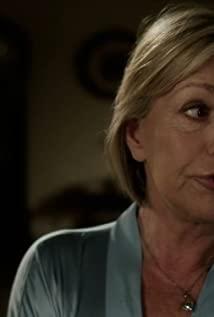2014.1.20
In the popular commercial films, it is full of timeless pleasure for consumption. Romance films sell handsome guys and lovers to get married; comedies sell fools and madness; cartoons sell innocence and kindness; police and gangster films sell evil; inspirational films sell success; martial arts films sell fantasy; disaster films sell hope... No wonder Some people say that movies are a dream, and a daydream. I would rather watch a love affair of a marginal person; comedy and black horror intertwined; there is no obvious binary opposition in the cartoon, friends will not be friends forever; the police spent half their lives failing to catch the murderer, and finally empty Keep a look of despair; the short and poor are three times harder than others, but still fail to realize their dreams; the banner of heaven is just a clothes pole in Don Quixote's hand; a flood drowns everyone No left, no Noah, no ark.
After all, this is what happens most of the time in life.
If you had to make a comparison between the two films, of course, people who have seen it will probably do so naturally: Compared with "The Hole", "The Shawshank Redemption" seems too romantic, and even Andy is in the dirty. The crawling in the dirty sewers also seemed so romantic. The emphasis of the two is not consistent, so it is clear: from the vague perspective of a drama film, "Xiao" is a great work due to its profound theme and exquisite narrative structure; but from the prison break film, this is a great work. From an accurate point of view, "Dong" can compare to "Xiao". If "Xiao" is a dream about hope and freedom, and "Hole" is the loud "Bang! Bang! Bang!" smashing the wall, which wakes you up from your dream.
"The Hole" is realism or naturalism, like a documentary, it solidly records how five strong men in the prison smashed the floor, sawed the iron railings, explored the underground passage, and then smashed the wall. In this process, how to make various gadgets, how to calculate the time, and how to deceive the eyes of the night patrol police. It is definitely not like another prison break film "Escape Plan", where prisoners with superhuman skills and Sherlock Holmes-like IQ perform dazzling escape skills, all the work in "The Hole" is done bit by bit. For example, in the first scene of the prison break operation, starting from the first action of hitting the floor, the camera never left the floor, arms and steel bars. The only thing that changed was that the four people took turns taking turns, starting from 37 minutes to 43 Minutes later, the camera cuts to another angle. It's a super long shot. Of course there are cuts and omissions in between, but most of the action is really done by the actors themselves. It is this documentary method in many places that makes the sense of reality come naturally, and at the same time, it does not feel that patience is worn away, which is really rare. In "Shaw", we don't care how Andy digs that huge hole bit by bit without being found, which is rationally ignored. In "The Hole", the audience is pulled in by them hammer by hammer, as if they are one of the participants, so they pay special attention to the effect of each action, pay special attention to every stone, every dust, and the prison guards. every step.
The realism also comes from the close-up and follow-up shots of the close-up. When Manu is standing on the iron railing, it is a close-up of a long saw blade; and when they walk in the dark and long underground passage, the camera follows them behind them (as if watching the The person also followed behind them,) until the characters walked faster and faster, the relative position of the camera stopped or receded, we can only see the circle of candles in front getting smaller and smaller, the light is getting weaker and weaker, (as if the viewer was trapped by them At the back.) - this shot appears many times, probably no less than three times - in the repetition, the realism is heightened.
Action, "Bang! Bang!", Action, "呲—呲—", Action, "Boom! Boom!"; no soundtrack. It's almost like the action and sound effects make up more than half of the film. The other part is handed over to very few lines, as well as refined hints and clues.
One of the hints is cobwebs. When two of the five were exploring the basement, they encountered two guards on patrol. One of the guards was watching a spider web intently, then took out a matchbox and took out a dead fly from it. "Here's your treat, baby," said the spider, and threw the fly to the spider; followed by a close-up of the guard's eye, who gave an exaggerated, sinister smile. The spider web is like this prison, the fly is Claude, and the guard's evil smile heralds the failure of the escape.
The clue is Claude's psychological changes. This point has already been analyzed by movie fans, so I won't go into details.
View more about Le Trou reviews


